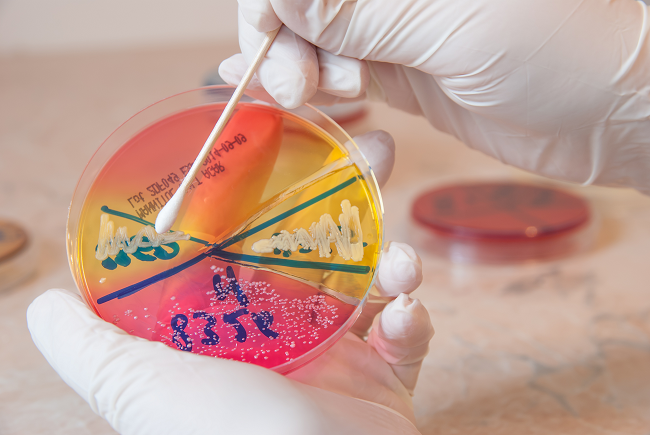It’s a really bad bug with the potential to do serious harm. The bacteria known as methicillin-resistant Staphylococcus aureus, or MRSA (pronounced MER-sa), can be resistant to treatment with many standard antibiotics, including methicillin. For that reason, a MRSA (a type of staph) infection can sometimes be life-threatening.
Often referred to as staph, Staphylococcus aureus is a species of bacteria carried primarily on the skin or in the nose of roughly one-third of people worldwide. Most of the time staph bacteria are harmless. But sometimes they can trigger an infection. Staph bacteria are one of the most common causes of minor skin infections in the U.S. and a frequent cause of pneumonia, surgical wound infections, and bloodstream infections.
Anyone can get a staph or MRSA infection. But some people have a higher risk of getting staph or MRSA infections, such as people living in confined areas or those who have close skin-to-skin contact with others. That includes athletes involved in football and wrestling, soldiers kept in close quarters, inmates, child care workers, and residents of long-term care facilities.
Staph often enters the body through a cut or scrape and can cause a skin infection that looks like a pimple or boil. The infected site may be red, swollen, and painful and may have pus or other drainage.
Sometimes a staph infection that starts on the skin will worsen and cause widespread infection. That’s why it’s important to contact a doctor if you think you have a staph infection.
For a mild or moderate skin infection, a doctor may simply drain the abscess or boil. You may not need an antibiotic. Although most staph and MRSA infections are treatable with antibiotics, only a limited number of antibiotics are available to work against MRSA.
To reduce your risk of getting a staph or MRSA infection, the most important thing you can do is practice good hygiene. That includes:
- Keeping your hands clean by washing thoroughly with soap and water or using an alcohol-based hand sanitizer.
- Keeping cuts and scrapes clean and covered with a bandage until healed.
- Avoiding sharing personal items such as towels or razors.
- Avoiding contact with other people’s wounds or bandages.
- Placing clothing or a towel between your skin and shared exercise equipment.
- Wiping surfaces of exercise equipment before and after you use them.
- Showering after working out.
For more information or to make an appointment with a specialist, call 423-778-2564 or visit www.erlanger.org.







